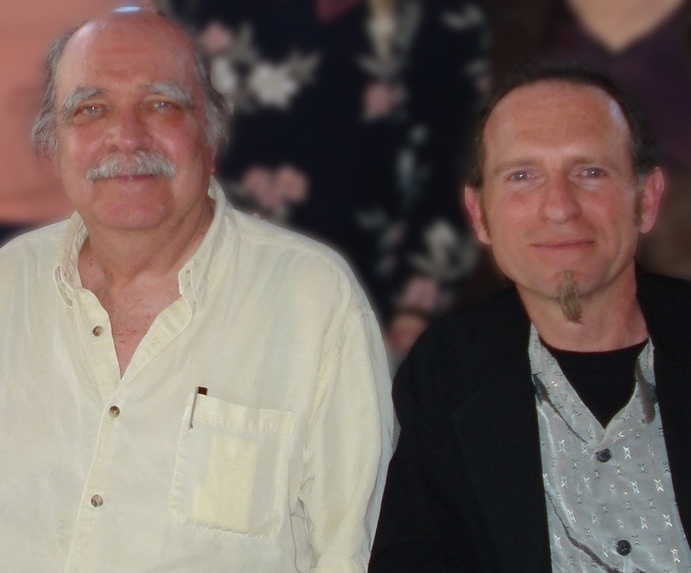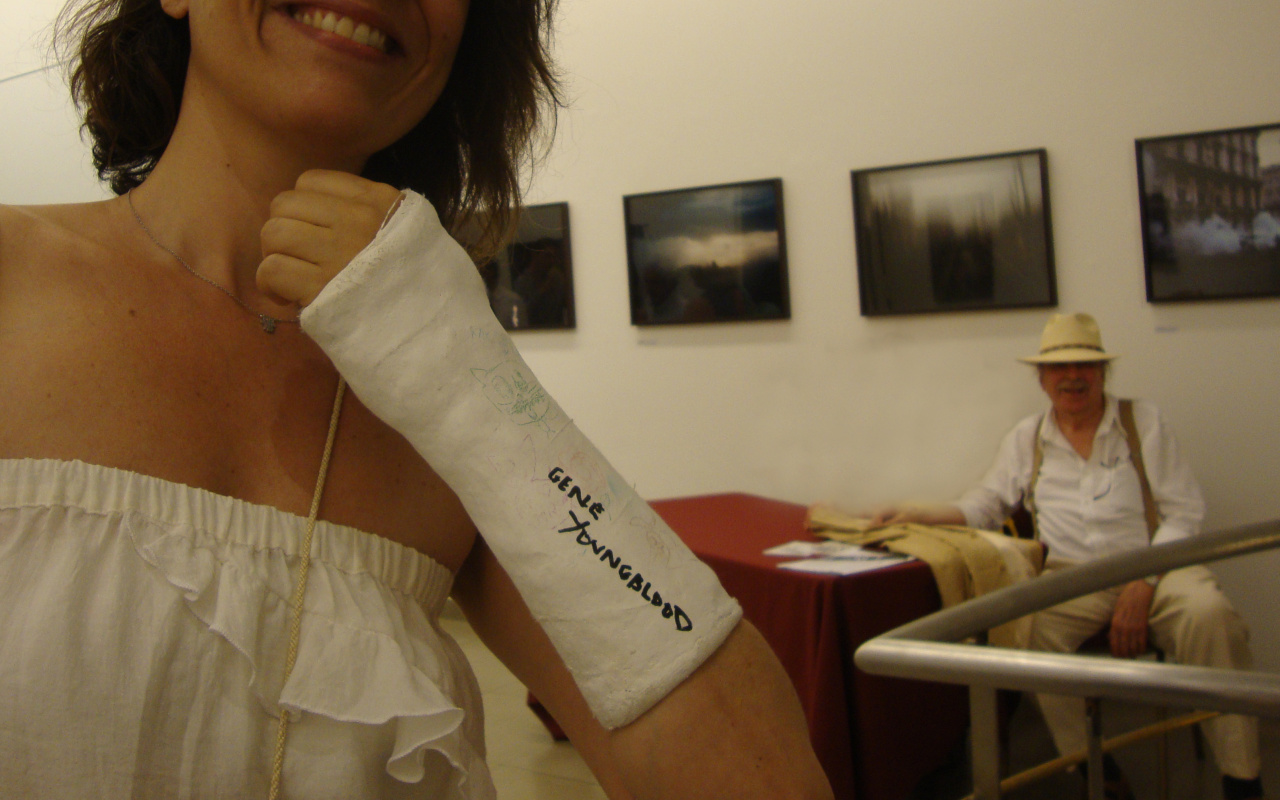Gene Youngblood: Secession From The Broadcast
A Project by Bryan Konefsky
I first heard the name Gene Youngblood in 1977 when I was a student enrolled in a video art class taught by legendary media artist Shalom Gorewitz. Shalom introduced me to Youngblood’s iconic text, Expanded Cinema. A year later, while enrolled in a course that studied the films of Jean Luc Godard (taught by Village Voice writer, George Morris), we learned that Gene was instrumental in hosting Godard at a historic conference held at USC in 1968. Thirteen years after my first encounter with Youngblood’s work, I moved to New Mexico with high hopes of meeting Gene and his colleagues, Woody and Steina Vasulka.
Gene and I became great friends until his death on April 6, 2021 just hours after what was to be our last visit. I always enjoyed making the pilgrimage to Santa Fe where we would dig through piles of personal ephemera while Gene told me tall and colorful tales from his past.
I remember Gene telling me about working for the Los Angeles Herald-Examiner and the “cookie jars” filled with benzedrine pills that kept the paper buzzing. Gene was one of the first reporters on the scene when Lenny Bruce overdosed on heroine, and he had some harrowing stories about witnessing the 1965 Watts race riots in Los Angeles where more than 1,000 buildings were destroyed during the 6 day uprising.
Gene told stories about how he embraced his self described hedonistic tendencies at the Sandstone Foundation for Community Systems Research in Topanga Canyon. He also had stories about his encounters with cultural luminaries such as John Lennon, Jack Nicholson, Jim Morrison, Anaïs Nin, members of the Black Panther Party and many others. Gene’s longtime friendships with cultural “movers and shakers” such as The Vasulkas, Kit Galloway and Sherri Rabinowitz, Sandra Lischi, Steve Benedict and Buckminster Fuller all shaped Gene’s thinking and writing in profound ways.
Gene’s stories also informed my own creative practice, as so many of Gene’s friends and colleagues were important in terms of framing my youthful world view.
At a certain point, I decided that it might be interesting to create a searchable archive that would include some of these important cultural thinkers and practitioners and record their thoughts on Gene and his scholarly research.
I began this project in November 2007, first interviewing film artist Peter Hutton. By the time I completed this project in 2022, I had collected more than 50 interviews that represented a remarkably diverse group of individuals, all of whom had been touched by Gene, a “cultural journalist” according to Peter Weibel, in his recorded conversation. I recall that Marita Sturken had some interesting things to say about Youngblood’s Expanded Cinema, but she went on to ask why he hadn’t written anything else. Her assumption was somewhat incorrect as Gene continued to write throughout his career, although he hadn’t published any additional books.
At the time of his death Gene had several incomplete manuscripts that he had been laboring over for years. These manuscripts included, amongst others, his memoirs, a book about media artist George Kuchar, a collection of select articles he had written while employed by the LA Free Press, a history of the work of technological visionaries Kit Galloway and Sherri Rabinowitz, and a text tentatively titled Secession from the Broadcast that was based on lectures he gave in the years leading up to his death. Scholars and researchers interested in these unfinished works can find Gene’s papers at Stanford University’s archive.
The taped conversations included in my project vary quite a bit. Some are longer and more in depth than others. Some were recorded specifically to help raise funds to develop the archive, and some, such as the three hour conversation I recorded with Gene, provides viewers with a unique insight into how this important cultural thinker interpreted the world. Additionally, I have included a recording of Gene giving a talk about his life on the occasion of his retirement from teaching at the College of Santa Fe (the audio is not great), talks that Gene gave at the San Francisco Art Institute and Pacific Film Archives that I recorded along with a talk Gene gave at the inaugural BIM festival in Buenos Aires. In Buenos Aires, one of the founders of the event, Andrés Denegri, provided me with a taped interview of himself reflecting on Gene’s impact on his work.
For research purposes, I decided to include complete interviews from the moment I turned my camera on to the moment I turned it off. Some of the interviews include B roll that geographically contextualized the location of a particular interview. In some cases, there are moments of silence as we recorded room tone or staged theatrical passages, such as in the interview with radical journalist Greg Palast. My hope is that this archive will be a useful research tool that collectively presents a unique and colorful portrait of my dear friend, Gene Youngblood.
Special thanks to Bruno Clarke for introducing me to the archivists at ZKM. Thanks to Peter Weibel for “green lighting” ZKM’s interest in my project. Thank you Annmarie Brennan, Christian Haardt, Harmut Jörg and Regina Linder for your hard work digitizing my taped interviews and constructing the webpage for this project. Also, thanks to Patrice Beers and Nina Shoenfeld for encouraging me to pursue and complete this archive of interviews. Last, thanks to my dad who, at the time of this writing, still thinks I should write a book about Gene.

